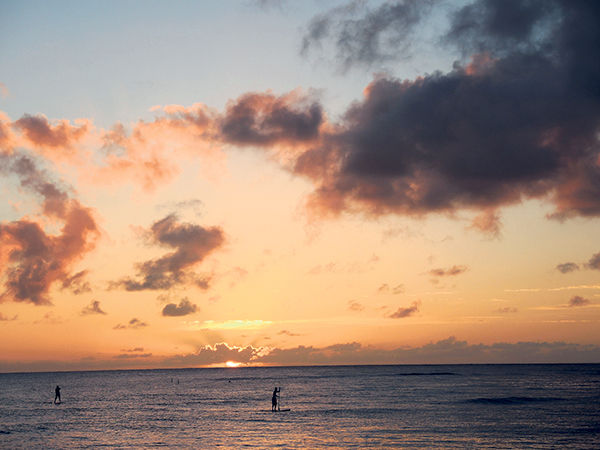LIHUE — Elena Godoy said living on Kauai has been a different, but exciting, adventure for her family since they moved here from Spain about two years ago. “Overall, it has been and is still a fantastic experience,” the Moloaa
LIHUE — Elena Godoy said living on Kauai has been a different, but exciting, adventure for her family since they moved here from Spain about two years ago.
“Overall, it has been and is still a fantastic experience,” the Moloaa resident said. “Speaking of nature, it’s fantastic. You’re in the middle of the ocean, so it’s perfect. The people are very open, the weather is fantastic, it’s not too hot, it’s never cold. The food is also nice, which is very important to me coming from Spain, so you have a lot of fresh fish, fruit and vegetables. These are the clear, objective points that are important for me.”
But what sets Kauai apart from the other Hawaiian Islands, or other places in the country? And is it a place to which residents would recommend moving?
It’s a question that, some residents say, comes with a few caveats.
The latest Gallup-Healthways Well-Being survey conducted last year ranks Hawaii eighth among all 50 states for overall well-being — a noticeable drop from the state’s No. 1 rank in 2012. Hawaii residents, in particular, were ranked 42nd in the country when it came to their work environment, including workplace atmosphere and relationships.
In a recent online poll on The Garden Island website, a bulk of the 710 responders said they wouldn’t recommend a friend move here.
To the question, “Would you recommend to friends that they move to Kauai?” 349 people answered, “No. It’s too crowded and expensive and it’s difficult to get used to living on an island,” while 325 said “Maybe. If they’re financially stable and have the aloha spirit.” Only 36 said “Yes, it’s a wonderful, welcoming place to live. We need more people.”
To put that in perspective, only 5 percent of those who responded to the poll said they would recommend, without any reservations, a friend move to Kauai. Nearly 50 percent said they wouldn’t.
That’s not exactly a ringing endorsement to move here.
So, what’s the problem?
One of the few downsides about living on Kauai, Godoy said, is the dearth of affordable housing options.
“I mean, if I had to raise a negative point, housing would be it,” Godoy said. “This is a minus — one of the little minuses.”
Lihue resident Jim Whitfield, who has lived on Kauai for 3 1/2 years and in Hawaii for a total of 11 years, agreed. He said moving here also requires some acceptance and open-mindedness.
When asked if he would recommend a friend move to Kauai, Whitfield said “I would never, because if we get too many people here, we’re screwed.”
“Hawaii’s a little different because it tends to be a little bit more insular and you’ve got to really adapt yourself to the local ways. You know, if you’re going to come here with a Mainland attitude, forget it.”
Kapaa resident Mike Yulo said there are some benefits to living on Kauai. Among them, he said, is “the healthy lifestyle.”
“I mean, you can’t beat it,” said Yulo, who has lived on Kauai since 1988. “That’s why I would move here — the fresh air, the beautiful sun, good food and fresh fruits.”
There is, however, one downside.
“It’s very expensive — other than that, that’s the only downside,” Yulo said. “I moved from Molokai to over here, so it was expensive there — compared to there and here, it’s cheaper here. Then, if you compare from here to Honolulu, Honolulu is a little bit cheaper.”
Issues stemming from population growth, however, may become a more pressing issue over time.
Between April 2010 and July 2013, the population on Kauai increased by 3.6 percent from 67,090 to 69,512 people — slightly higher than the 3.2 percent increase in population statewide, according to U.S. Census Bureau data.
That number, according to a 2012 county-funded multimodal land transportation plan, is expected to jump to 85,298 by 2035, a nearly 23 percent increase from 2013 population figures.
Wailua Homesteads resident Bridget Arume said there are certain caveats to different living circumstances, such as seeking retirement, searching for employment, or even just seeking to add to the island in some way.
“If they’re not used to island living, I would say ‘don’t,’ because island living requires a different sort of mindset, and if they’ve never lived on an island before, I’d say do an extended visit,” Arume said. “It’s not an easy place to live — it’s not eat through the forest, fish for what you want, go home and sit in your hammock. That isn’t the life, so you have to kind of say, ‘What can I bring to the table,’ if you’re going to live here, help the people that are here and not come to change the life here — that’s an important sort of caveat on what’s your purpose in coming here.”


